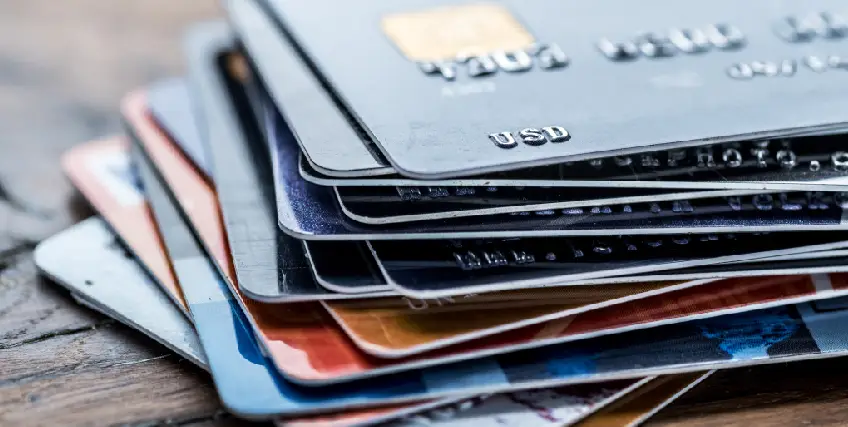Do You Need More Than One Business Credit Card? Here's the Truth
April 22, 2025 | Last Updated on: April 22, 2025

Most small business owners start with one business credit card. It makes sense. A single card helps manage business expenses, track purchases, and build a financial foundation. But as a business grows, so do its financial needs. That leads many owners to ask: Is one business credit card enough?
This article breaks down when it makes sense to stick with one card and when using multiple business credit cards is the smarter move. It looks at how multiple cards can help manage cash flow, separate team expenses, and unlock better rewards. We also cover the downsides: more complexity, the risk of overspending, and possible effects on your business credit score.
Whether you're a startup founder with limited capital or a growing LLC managing multiple teams, this guide will help you understand your options. The goal isn’t to push more cards. It’s to help you make the right decision for your specific business needs.
Can Businesses Have Multiple Credit Cards?
Businesses can hold multiple business credit cards, even if a business is under sole proprietorship. Credit card issuers like American Express, Chase, and Capital One often allow qualified businesses to open more than one account. As long as your business shows healthy revenue, a good credit history, and strong payment habits, you can apply for additional cards.
There’s no legal limit on how many cards a business can own. In fact, many small business owners apply for different cards based on the benefits they offer. You might use one card for everyday expenses, another for travel rewards, and a third with no foreign transaction fees for international purchases.
Managing more than one card helps you build business credit faster, especially when you pay on time and keep credit utilization low. This is key for startups using business credit cards to build credit and unlock better financing options later.
Some cards also offer employee cards with preset spending limits. This is useful if your team is growing, and you want to delegate spending while keeping control. Just make sure you can keep track of all due dates, fees, and balances because missed payments can hurt your business credit score.
Benefits of Having Multiple Business Credit Cards
Increased Access to Capital
Each business credit card comes with its own credit limit. By having multiple cards, you can increase your total available credit. This can be particularly helpful during periods of high expenditure or when unexpected costs arise.
Optimized Rewards
Different cards offer various rewards programs. For instance, one card might provide higher cash back on office supplies, while another offers better travel rewards. By strategically using multiple cards, you can maximize these benefits.
Improved Expense Management
Assigning specific cards to different departments or expense categories can simplify tracking and budgeting. It allows for clearer insights into spending patterns and helps in identifying areas for cost-saving.
Building Business Credit
Using multiple business credit cards responsibly can help build your business credit profile. Timely payments and low credit utilization across several accounts demonstrate financial reliability to credit bureaus.
Potential Drawbacks of Multiple Business Credit Cards
Complex Management
Managing several cards means keeping track of multiple due dates, payment amounts, and rewards programs. This complexity can lead to missed payments or underutilized benefits if not handled carefully.
Risk of Overspending
With increased credit availability, there's a temptation to spend more than necessary. This can lead to higher debt levels and potential financial strain.
Impact on Credit Score
Applying for multiple cards in a short period can result in several hard inquiries on your credit report, potentially lowering your credit score. Additionally, high balances across multiple cards can negatively affect your credit utilization ratio.
Situations Where Multiple Business Credit Cards Make Sense
Diverse Spending Categories
If your business has varied expenses like travel, office supplies, and advertising, different cards can offer tailored rewards for each category.
Multiple Departments or Teams
Assigning specific cards to different departments can streamline expense tracking and accountability.
Frequent Travel
For businesses with regular travel needs, having a card that offers travel rewards and perks can be beneficial.
Building Business Credit
Startups or businesses looking to establish a strong credit profile might benefit from managing multiple cards responsibly to demonstrate creditworthiness.
Situations Where One Business Credit Card Suffices
Simple Business Structure
Sole proprietors or small businesses with straightforward expenses might find one card adequate for their needs.
Limited Monthly Expenses
If your business has minimal monthly expenditures, a single card can efficiently handle all transactions without the need for multiple accounts.
Preference for Simplicity
Some business owners prefer to keep financial management uncomplicated. Maintaining one card reduces the administrative burden of tracking multiple accounts.
Best Practices for Managing Multiple Business Credit Cards
Regular Monitoring
Keep a close eye on all card activities. Regularly review statements to ensure all charges are accurate and to monitor spending patterns.
Automated Payments
Set up automatic payments to avoid late fees and maintain a positive payment history. This also helps in managing cash flow effectively.
Periodic Review
Assess the benefits and costs of each card periodically. If a card no longer serves your business needs or incurs high fees without corresponding benefits, consider closing it.
Employee Training
If employees are authorized to use business credit cards, ensure they understand company policies regarding spending limits and acceptable expenses.
Alternatives to Business Credit Cards
Business Line of Credit
A business line of credit offers flexible funding. It works like a credit card—you borrow as needed—but usually with higher limits and lower interest rates. It's good for short-term expenses or seasonal gaps in cash flow. You only pay interest on the amount you use. For businesses that prefer flexibility without chasing rewards, this can be a smarter option. It also helps build business credit over time. If you're weighing business credit cards to build credit against other tools, a line of credit is worth considering—especially for small businesses that need working capital without high annual fees.
Small Business Loans
Small business loans are great for big, one-time costs. Whether it’s new equipment or opening a second location, loans give you a lump sum and a fixed repayment schedule. Unlike business credit cards, they’re not revolving accounts, so you avoid ongoing interest if paid as planned. Lenders look at your credit score, revenue, and time in business before approving. These are ideal for LLCs or partnerships with clear growth goals. For example, while the best small business credit cards for LLC help manage daily expenses, loans support long-term investments. You can even use both to manage different business needs.
Business Grants
Unlike credit cards or loans, grants don’t need to be paid back. They’re offered by government agencies, nonprofits, and private organizations. While competitive, they’re an excellent option for startups and minority-owned businesses with strong pitches or mission-driven models. No credit check is needed, so this is ideal for those who don’t yet qualify for the best credit cards for startup business. Though they don’t help directly build business credit, grants provide critical funding without debt.
Conclusion
Deciding on the number of business credit cards to maintain depends on your business's specific needs and financial habits. While multiple cards can offer increased rewards and better expense management, they also require diligent oversight.
Evaluate your business operations, spending patterns, and capacity to manage multiple accounts before expanding your credit card portfolio. By doing so, you can make informed decisions that support your business's financial health and growth.
FAQs on Business Credit Cards
- Can I apply for more than one business credit card at a time?
Yes, you can apply for more than one business credit card, but timing matters. Multiple applications in a short span can trigger hard inquiries, which may lower your personal credit score. If you're building business credit, it's better to space out applications. Each card should serve a specific purpose—like rewards, low APR, or travel perks. Whether you’re an LLC or sole proprietor, the best small business credit cards for LLC or startups often require good credit and solid financials to qualify.
2. Does having multiple business credit cards affect my credit score?
It depends on how you manage them. Timely payments and low balances help your business credit score. But missed payments or high utilization across multiple cards can hurt both your personal and business credit. If you’re using business credit cards to build credit, monitor spending carefully. Multiple cards also mean more available credit, which can improve your utilization ratio if used wisely. Review your credit reports regularly through agencies like Experian or Dun & Bradstreet to stay in control.
3. How many business credit cards are too many?
There’s no set number—it depends on your business size, spending habits, and ability to manage payments. Two to three business credit cards are common for small businesses, especially when they serve different spending categories. However, too many cards can make it harder to keep track of expenses and due dates. If you find yourself struggling with organization or making minimum payments, you likely have too many. Stick to the best business credit cards that align with your business needs and offer real value.
4. Can I use personal credit cards instead of business credit cards?
You can, but it’s not ideal. Personal credit cards don’t build business credit and can blur the line between personal and business expenses. This can create problems during tax season or when applying for business loans. Business credit cards offer features like employee spending controls, higher limits, and rewards tailored to business categories. For startups, separating expenses early on helps establish credibility. If you’re looking for the best credit cards for startup business, start with one that reports to business credit bureaus.
5. What are signs I need another business credit card?
You might need another card if you’ve outgrown your current card’s limit, want to separate team or department expenses, or want to maximize rewards in different categories. It also makes sense if you're managing travel, recurring subscriptions, and office expenses under one account. Adding a card with specific perks—like no foreign transaction fees or higher cash back—can optimize your budget. Many small business owners turn to the best small business credit cards for LLC to manage diverse costs while building business credit.




